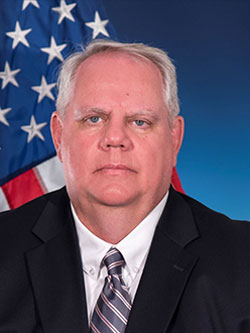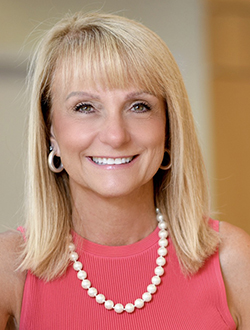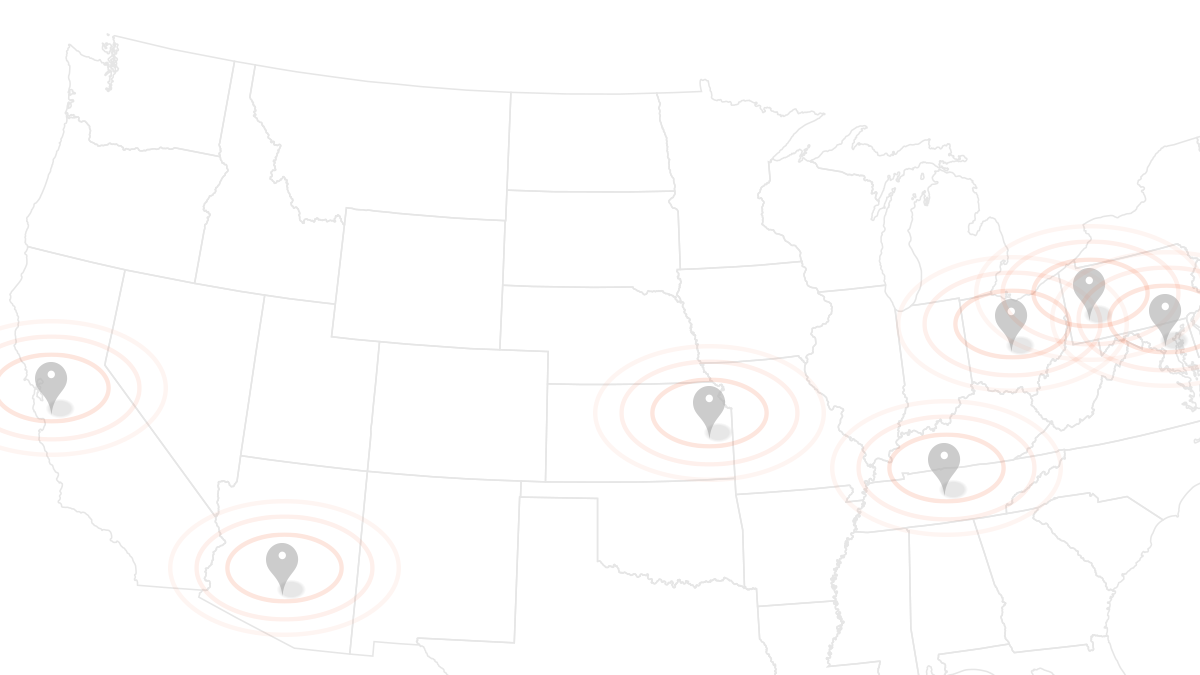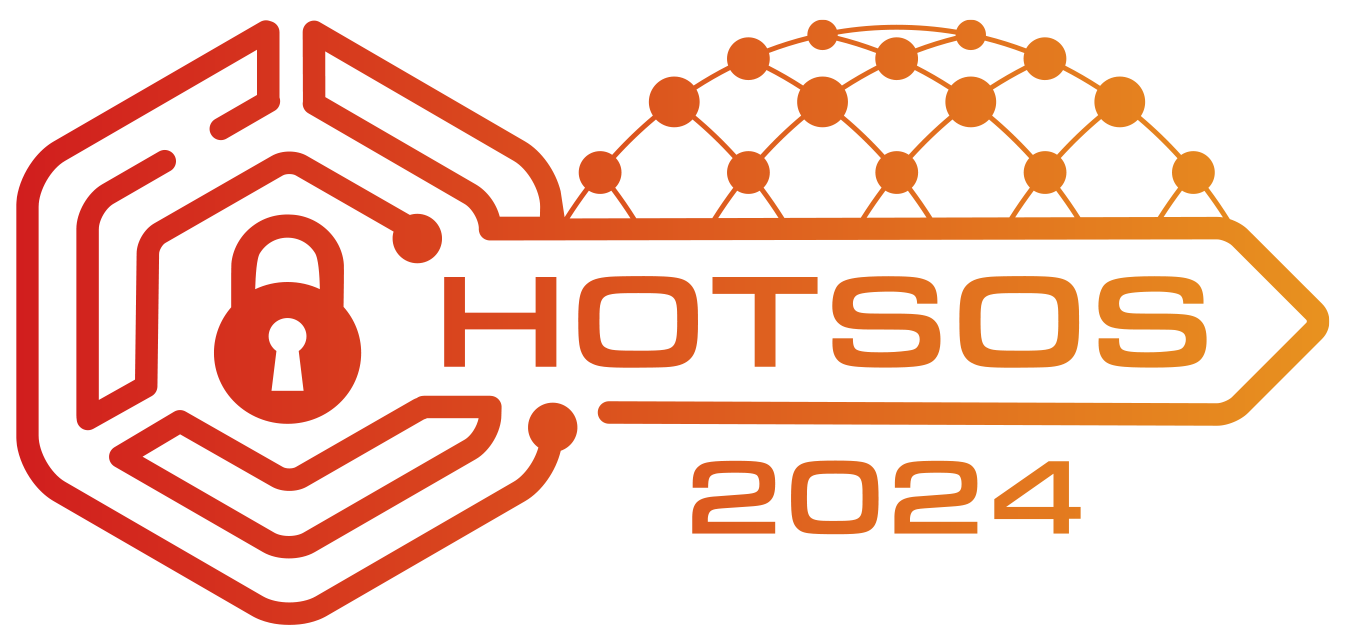 Dr. Carl Landwehr has consulted with NSA's Science of Security research program since 2012, including assisting its annual Best Science of Security paper competition. He edited IEEE Security & Privacy magazine from 2007-2010 and is an IEEE Fellow. He was in the first class of members elected to the National Cybersecurity Hall of Fame in 2012. After leading research projects in computer security at the Naval Research Laboratory for more than 20 years, he helped found the first program in Trusted Computing at the National Science Foundation and helped it grow to today's Secure and Trustworthy Cyberspace program. Following his retirement from NSF in 2011, he has remained active as a consultant to research programs in cybersecurity for government, major corporations, and industry laboratories, and as a Visiting Professor at the University of Michigan and LeMoyne College. His current interests focus on the intersection of technology and public policy.
Dr. Carl Landwehr has consulted with NSA's Science of Security research program since 2012, including assisting its annual Best Science of Security paper competition. He edited IEEE Security & Privacy magazine from 2007-2010 and is an IEEE Fellow. He was in the first class of members elected to the National Cybersecurity Hall of Fame in 2012. After leading research projects in computer security at the Naval Research Laboratory for more than 20 years, he helped found the first program in Trusted Computing at the National Science Foundation and helped it grow to today's Secure and Trustworthy Cyberspace program. Following his retirement from NSF in 2011, he has remained active as a consultant to research programs in cybersecurity for government, major corporations, and industry laboratories, and as a Visiting Professor at the University of Michigan and LeMoyne College. His current interests focus on the intersection of technology and public policy.


Mr. William Bradley Martin joined DARPA as a program manager in the Information Innovation Office (I2O) in April 2021. His research interests include the development of capabilities in support of achieving continuous reasoning of complex high assurance systems.
Martin joins DARPA from the National Security Agency (NSA), where he has served in a variety of roles, most recently as acting technical director and cybersecurity subject matter expert of the Laboratory for Advanced Cybersecurity Research. While at NSA, Martin focused on conducting and sponsoring collaborative research in technologies and techniques that aim to advance the security of America's information systems of tomorrow. In particular, these efforts focused on domain-specific languages, system analysis, and trustworthy AI. Martin has a strong history in building communities in the area of high confidence software and systems research and development. He initiated research groups at NSA supporting the development of scientific foundations and technologies in cybersecurity and privacy.

 David M. Nicol is Professor of Computer and Electrical Engineering at the University of Illinois, Urbana-Champaign, and Director of the Information Trust Institute. Previously he held faculty positions at the College of William and Mary, and Dartmouth College. His research interests include high performance computing, simulation modeling and analysis, and security. He was elected Fellow of the IEEE, and Fellow of the ACM for his contributions in these areas. He is co-author of the widely used textbook "Discrete-Event Systems Simulation", and was the inaugural awardee of the ACM Special Interest Group on Simulation's Distinguished Contributions Award, for his contributions in research, teaching, and service in the field of simulation.
David M. Nicol is Professor of Computer and Electrical Engineering at the University of Illinois, Urbana-Champaign, and Director of the Information Trust Institute. Previously he held faculty positions at the College of William and Mary, and Dartmouth College. His research interests include high performance computing, simulation modeling and analysis, and security. He was elected Fellow of the IEEE, and Fellow of the ACM for his contributions in these areas. He is co-author of the widely used textbook "Discrete-Event Systems Simulation", and was the inaugural awardee of the ACM Special Interest Group on Simulation's Distinguished Contributions Award, for his contributions in research, teaching, and service in the field of simulation.

 Dr. William Scherlis is a Professor of Computer Science and Special Advisor to the Software Engineering Institute at Carnegie Mellon University. Prior to this role, Dr. Scherlis was the office director for DARPA’s Information Innovation Office (I2O) from September 2019 to May 2022. In that role, he led program managers in the development of programs, technologies, and capabilities to ensure information advantage for the United States and its allies, and to coordinate this work across the Department of Defense and U.S. government. Dr. Scherlis also served as a special assistant to the DARPA Director from May 2022 to September 2022.
Dr. William Scherlis is a Professor of Computer Science and Special Advisor to the Software Engineering Institute at Carnegie Mellon University. Prior to this role, Dr. Scherlis was the office director for DARPA’s Information Innovation Office (I2O) from September 2019 to May 2022. In that role, he led program managers in the development of programs, technologies, and capabilities to ensure information advantage for the United States and its allies, and to coordinate this work across the Department of Defense and U.S. government. Dr. Scherlis also served as a special assistant to the DARPA Director from May 2022 to September 2022.
 Laurie Williams is a Distinguished University Professor in the Computer Science Department of the College of Engineering at North Carolina State University (NCSU). Laurie is the director of the NSF-sponsored Secure Software Supply Chain Center (S3C2), and co-director of the NCSU Science of Security Lablet sponsored by the National Security Agency, the NCSU Secure Computing Institute, and the North Carolina Partnership for Cybersecurity Excellence (NC-PaCE). Laurie's research focuses on software security, software process, and empirical software engineering.
Laurie Williams is a Distinguished University Professor in the Computer Science Department of the College of Engineering at North Carolina State University (NCSU). Laurie is the director of the NSF-sponsored Secure Software Supply Chain Center (S3C2), and co-director of the NCSU Science of Security Lablet sponsored by the National Security Agency, the NCSU Secure Computing Institute, and the North Carolina Partnership for Cybersecurity Excellence (NC-PaCE). Laurie's research focuses on software security, software process, and empirical software engineering.


